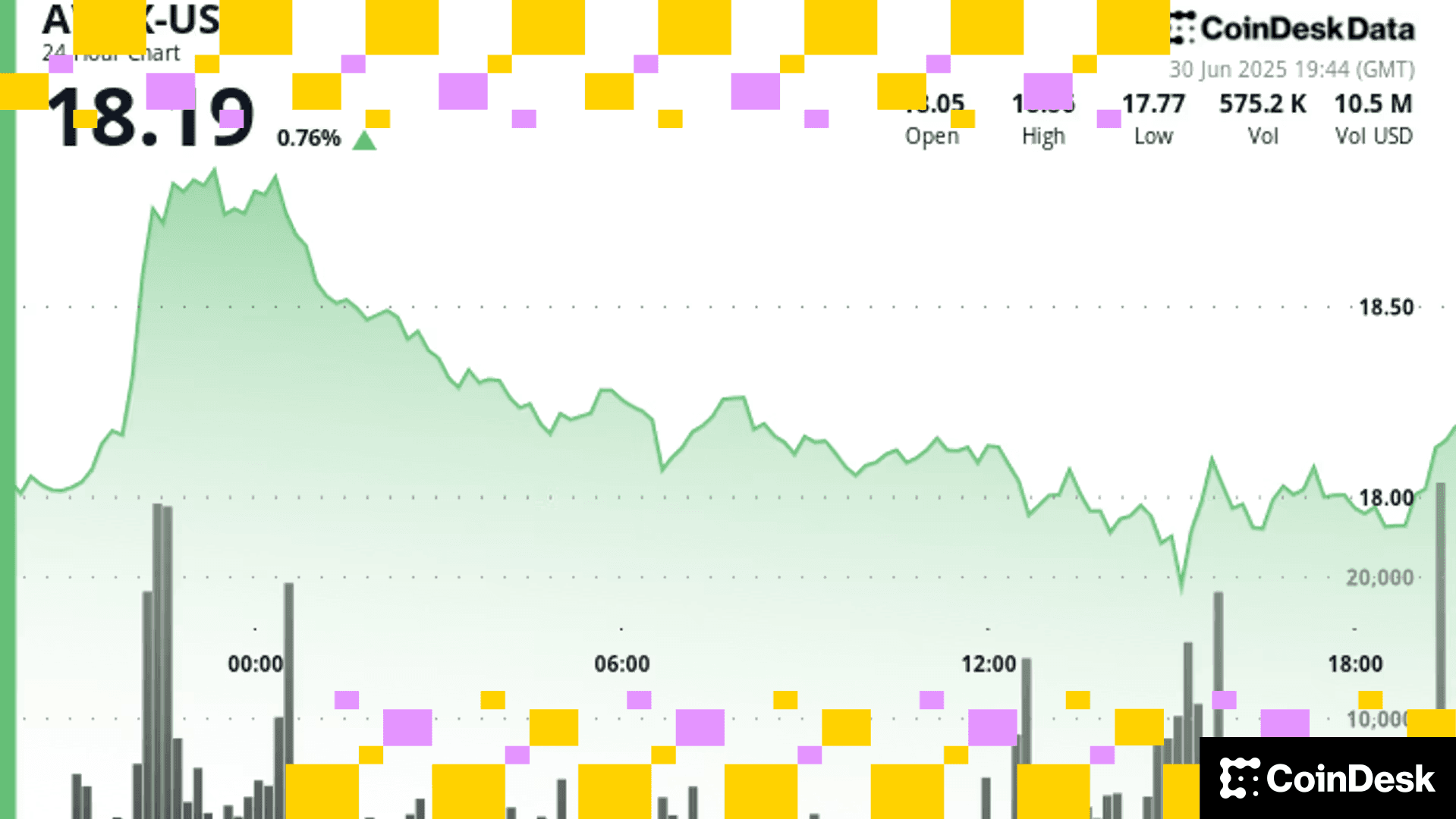UK's Delayed Regulation Hurts Plan to Be Global Crypto Hub, Executives Say: CNBC
The country is falling behind other nations in developing a welcoming environment for crypto companies.

What to know:
- The U.K. needs to work harder on becoming a crypto hub to avoid falling behind countries like the U.S., industry executives told CNBC.
- The government only recently released legislation for the digital assets industry.
The U.K. needs to work harder at becoming a global center for the crypto industry to avoid falling behind countries like the U.S., industry executives told CNBC.
The country has been saying it wants to be a crypto hub since 2022, before the current Labour government was elected, yet only this week did it start seeking comments on draft legislation for the industry.
The European Union, meanwhile, has already implemented its Markets in Crypto Assets legislation (MiCA), which provides a uniform regime across the bloc, and the new U.S. administration of President Donald Trump is promoting the industry and relaxing regulation.
“If I look at the speed of innovation, I do feel that the U.S. is ahead — although they have their own challenges. But look at Singapore, Hong Kong — again, you see much more rapid innovation,” Jaidev Janardana, the CEO of digital bank Zopa, told CNBC. “I think we are still ahead of the EU, but we can’t remain complacent with that.”
Trump, for his part, has been urging departments to make crypto-friendly policies, and stablecoin legislation is working its way through the Senate. The stablecoin sector could surge 10-fold to reach $2 trillion within three years following the passage of the legislation, Standard Chartered has forecast.
“Other jurisdictions have started to seize the opportunity,” said Cassie Craddock, the managing director for U.K. and Europe at blockchain firm Ripple, in an interview with CNBC.
Mark Fairless, CEO of payments infrastructure firm ClearBank, said his business has been looking to develop its own stablecoin and has been held back by the lack of regulatory clarity.
Stablecoins are “part of our medium-term, longer-term strategy,” Fairless told CNBC. “We see ourselves well set up for that.” However, he added, a ClearBank stablecoin will be possible only once there’s clarity from U.K. regulators including the Bank of England.
Still, the country hasn't entirely missed the bus.
"The U.K. is still that great place to set up. We have all the ingredients there, because we’ve got the ecosystem, we do have this talent setting up new businesses," Lisa Jacobs, CEO of business lending platform Funding Circle, said. "But it needs to continue. We can’t rest on our laurels."
“I think the U.K. will get it right — but there is a risk if you get it wrong that you drive innovation to other markets,” Keith Grose, Coinbase's U.K. head, told CNBC.
Read more: The UK Has Created Crypto Banking Problems
More For You
Exchange Review - March 2025

CoinDesk Data's monthly Exchange Review captures the key developments within the cryptocurrency exchange market. The report includes analyses that relate to exchange volumes, crypto derivatives trading, market segmentation by fees, fiat trading, and more.
What to know:
Trading activity softened in March as market uncertainty grew amid escalating tariff tensions between the U.S. and global trading partners. Centralized exchanges recorded their lowest combined trading volume since October, declining 6.24% to $6.79tn. This marked the third consecutive monthly decline across both market segments, with spot trading volume falling 14.1% to $1.98tn and derivatives trading slipping 2.56% to $4.81tn.
- Trading Volumes Decline for Third Consecutive Month: Combined spot and derivatives trading volume on centralized exchanges fell by 6.24% to $6.79tn in March 2025, reaching the lowest level since October. Both spot and derivatives markets recorded their third consecutive monthly decline, falling 14.1% and 2.56% to $1.98tn and $4.81tn respectively.
- Institutional Crypto Trading Volume on CME Falls 23.5%: In March, total derivatives trading volume on the CME exchange fell by 23.5% to $175bn, the lowest monthly volume since October 2024. CME's market share among derivatives exchanges dropped from 4.63% to 3.64%, suggesting declining institutional interest amid current macroeconomic conditions.
- Bybit Spot Market Share Slides in March: Spot trading volume on Bybit fell by 52.1% to $81.1bn in March, coinciding with decreased trading activity following the hack of the exchange's cold wallets in February. Bybit's spot market share dropped from 7.35% to 4.10%, its lowest since July 2023.
More For You











